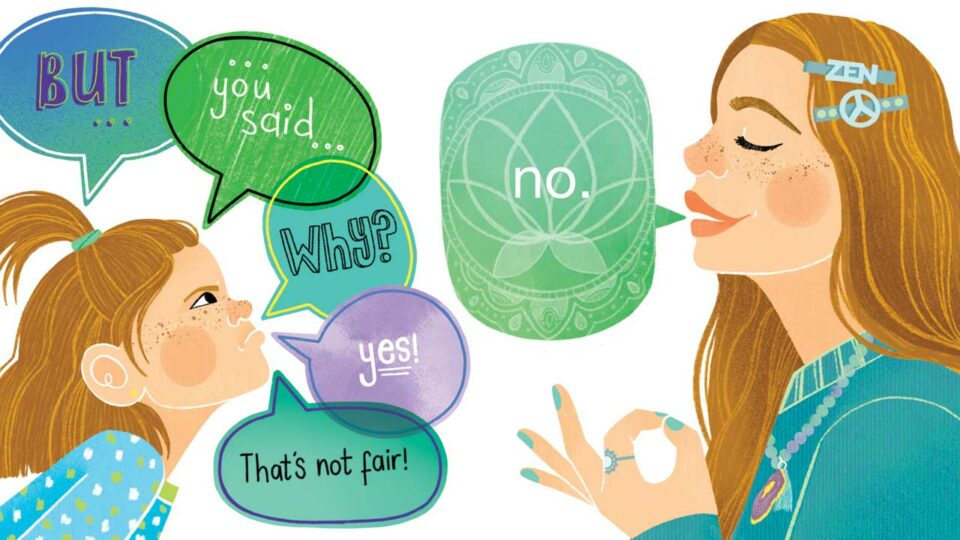
My Child’s Back Talk is Out of Control
Dr. Amanda N’zi, a licensed psychologist, offers her best tips.
The Problem: My eight-year-old daughter has started giving us a lot of back talk. I’ve let her know it’s not OK and even punished her for it, but it continues. It’s really annoying and I don’t want it to become a habit. How do I put an end to it?
The Expert: Dr. Amanda N’zi, licensed psychologist and owner of Growing Together Child and Family Therapy, growingtogethertherapy.com
The Solution: Back talk can feel exhausting and disrespectful. It’s also a part of growing up and happens as children learn independence and how to navigate complex emotions and relationships. Here are four strategies to help decrease back talk:
Stay calm and avoid lecturing.
The most common reason for back talk is to gain attention as kids are learning to assert themselves and to test boundaries, according to Michele Borba Ed.D., author of Don’t Give Me That Attitude. If you’re lecturing or negotiating, then kids learn this is a way to get your attention and will back talk more. Take a deep breath and stay calm. The more you react in the moment, the louder the back talk will become. Stay matter-of-fact by briefly saying, “That is back talk. We can talk about this when you are calm,” and avoid responding to anything else they say.
Label feelings.
Your child may be showing her sad or worried feelings through irritability or anger. Maybe a friend hurt her feelings or she’s worried about an upcoming test. When your child is calm and not back-talking, share what you have noticed and ask for more information about her feelings. Help her find words like “disappointed” or “worried” so she can understand her feelings better. Wait to problem-solve the situation until after you’ve talked about her feelings and perspective. This will make her feel heard and understood.
Let them lead, and praise the positives.
To help children find your positive attention and talk respectfully, set aside five to 10 minutes, four to five times a week where you focus on doing something your child wants to do. Maybe make something together or join her in an activity she loves. Praise positive things you see during this time like nice words, sharing, or being kind. Then, throughout the day, point out when your child is staying calm, has a good attitude, or is listening right away. What you pay attention to will happen more, even the positive things.
Stay consistent.
This one is really important. If back talk is still happening after you’ve said “no,” stick with it and try not to change what you said. You can discuss her concerns after she’s listened or calmed down. Kids want to be heard. If you’re negotiating when back talk is happening, then your child can feel unheard and will argue more.
Back talk can be frustrating. When you prioritize the relationship and think of other things that may be impacting the back talk, you can navigate this together.
—Edited by Courtney Drake-McDonough





